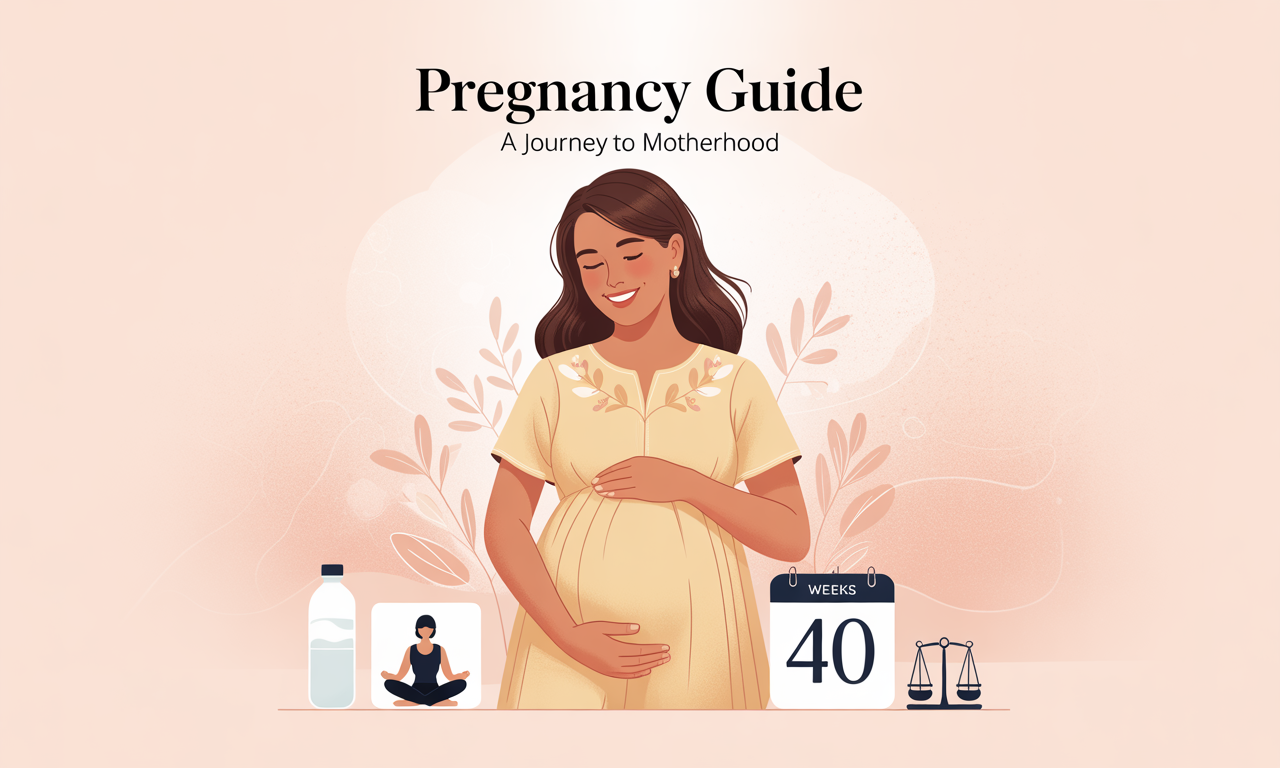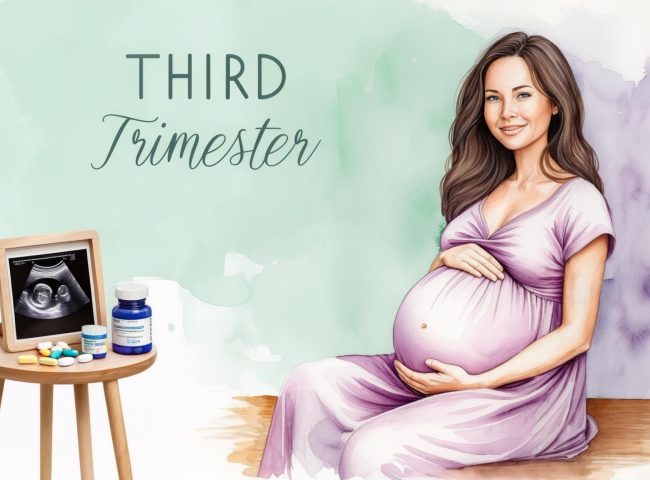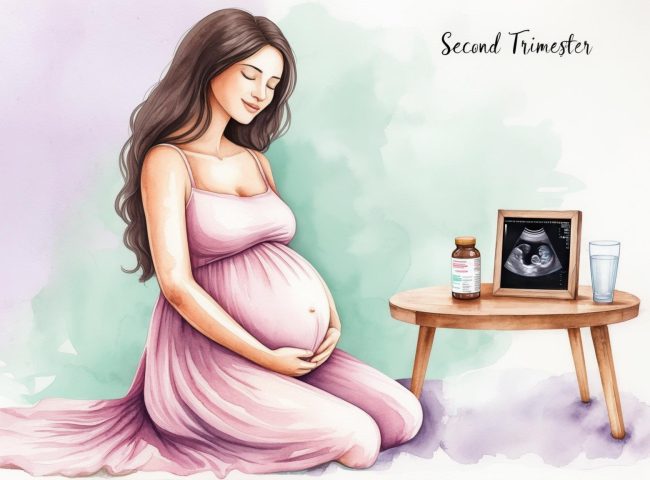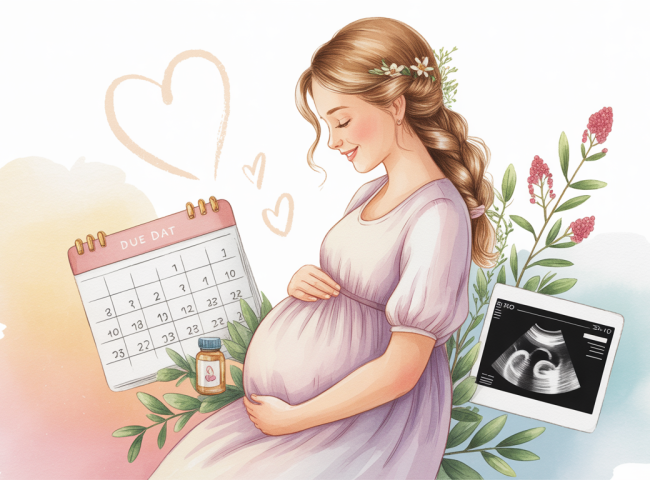Pregnancy is a transformative experience, filled with excitement, questions, and changes. Whether you’re a first-time parent or preparing for another child, understanding the stages and care involved can make the journey smoother. This guide covers everything from the basics of pregnancy to what to expect in each trimester and beyond, helping you feel empowered and informed.
What is Pregnancy?
Pregnancy is the incredible process where a baby develops inside a woman’s uterus over approximately nine months. It begins with conception and ends with childbirth, involving a series of physical and emotional changes driven by hormones. This natural journey prepares your body to nurture and deliver a new life, making it one of the most profound experiences for many women.
How Does a Pregnancy Begin?
Pregnancy starts when a sperm fertilizes an egg, typically during ovulation, when an ovary releases a mature egg. This usually occurs around day 14 of a 28-day menstrual cycle, though timing varies. After intercourse, sperm travels through the cervix and uterus to meet the egg in the fallopian tube. Once fertilized, the egg becomes a zygote, implants in the uterine wall, and begins developing into an embryo. Hormonal shifts then support the pregnancy, halting menstruation and fostering fetal growth.
How Long Does a Pregnancy Last?
A typical pregnancy lasts about 40 weeks, measured from the first day of your last menstrual period (LMP). This duration serves as a guideline for tracking fetal development, though some babies arrive a bit earlier or later. The 40-week timeline helps healthcare providers monitor progress and plan for a healthy delivery.
How Is the Estimated Due Date (EDD) Calculated?
Your due date is an estimate of when your baby is likely to be born. To calculate it, start with the first day of your last menstrual period and add 280 days (or 40 weeks). For example, if your LMP was January 1, your due date would be around October 8. Online due date calculators or ultrasounds can refine this estimate, as they account for variations in ovulation or fetal growth.
What Does Gestational Age Refer To in Pregnancy?
Gestational age is the age of the pregnancy, counted in weeks from the first day of your last menstrual period. It’s a key metric for tracking your baby’s development, helping doctors assess milestones like organ formation or growth spurts. For instance, a 20-week gestational age means the pregnancy is halfway through its typical 40-week course.
Stages of Pregnancy?
Pregnancy is divided into three trimesters, each representing a phase of growth for both you and your baby:
- First Trimester (Weeks 1–12): Early development of the fetus.
- Second Trimester (Weeks 13–26): Growth and increased maternal comfort.
- Third Trimester (Weeks 27–40): Final preparations for birth.
These stages help organize prenatal care and expectations, making the process easier to navigate.
What Happens During Each Trimester of Pregnancy?
First Trimester
The first trimester (weeks 1–12) is a whirlwind of change. Your baby’s major organs, like the heart and brain, begin forming, and the placenta develops to provide nutrients. You might experience fatigue, nausea (often called morning sickness), mood swings, or tender breasts due to hormonal surges. Prenatal visits start now, with blood tests and ultrasounds to ensure everything’s on track.
Second Trimester
From weeks 13 to 26, the second trimester often feels like a relief. Nausea may fade, and energy levels often rise. Your baby’s movements, like kicks, become noticeable, and their features develop further. You’ll likely have a detailed ultrasound to check anatomy. Your belly grows, and you may start planning for baby gear or maternity clothes.
Third Trimester
The third trimester (weeks 27–40) is when your baby packs on weight and fine-tunes systems like lungs and digestion. You might feel more discomfort, such as backaches, swollen feet, or Braxton Hicks contractions (practice contractions). Prenatal checkups increase to monitor labor signs and prepare for delivery. It’s also a time to finalize birth plans and pack your hospital bag.
Full-term pregnancy
A full-term pregnancy occurs between 37 and 40 weeks of gestation, when the baby is fully developed and ready for birth. Babies born in this window typically have mature lungs, stable weight, and strong reflexes. Deliveries before 37 weeks are preterm, while those after 42 weeks are post-term, both of which may require extra medical attention.
Pregnancy healthcare tips
Prenatal care is essential for a healthy pregnancy. This includes regular visits to a healthcare provider, such as an obstetrician or midwife, to monitor your health and the baby’s development. Care typically involves:
- Checkups: To track weight, blood pressure, and fetal growth.
- Tests: Blood tests, ultrasounds, NIPT, amniocentesis and screenings for conditions like gestational diabetes.
- Lifestyle Guidance: Advice on nutrition, exercise, and avoiding harmful substances like alcohol or tobacco.
- Education: Information on labor, delivery, and postpartum care.
Building a relationship with your healthcare provider ensures personalized care and early detection of any issues.
Healthy weight during pregnancy
Weight gain depends on your pre-pregnancy body mass index (BMI). Approximate guidelines are:
- Underweight (BMI < 18.5): 28–40 pounds
- Normal Weight (BMI 18.5–24.9): 25–35 pounds
- Overweight (BMI 25–29.9): 15–25 pounds
- Obese (BMI ≥ 30): 11–20 pounds
This gain accounts for the baby, placenta, amniotic fluid, and maternal changes like increased blood volume. Focus on nutrient-rich foods and consult your provider for personalized goals.






Leave feedback about this